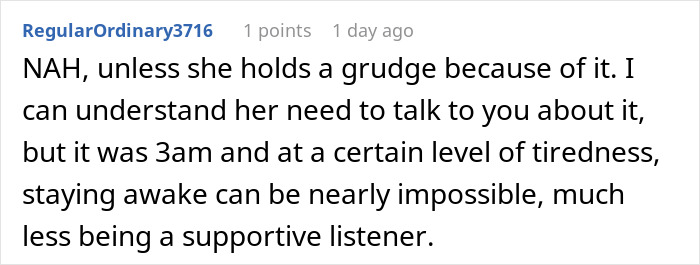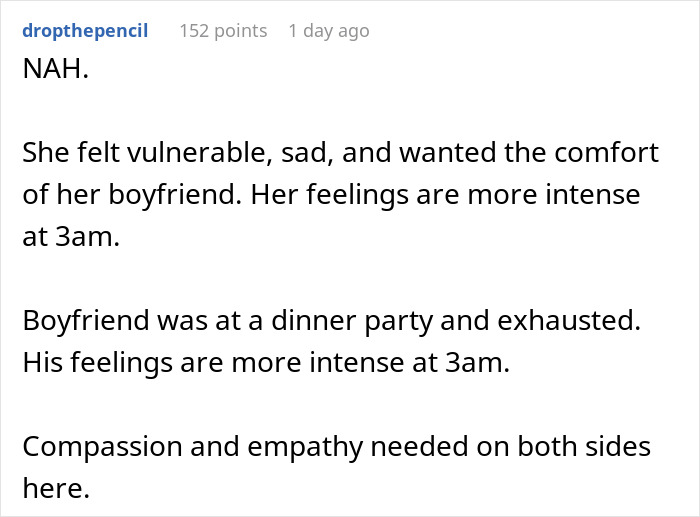Despite the fact that half of us did not grow up in picture perfect families, it can be difficult to open up to loved ones about your painful upbringing. So when someone finally gathers the courage to share, it’s important to be present and listen closely to what they want to discuss. Unless, of course, they decide to start talking hours past your bedtime.
One man recently posted on Reddit detailing how he fell asleep while his girlfriend was sharing about her rocky relationship with her father on a late-night phone call. Now, he’s wondering if he was in the wrong, so below, you’ll find the full story, as well as some of the replies from readers.
While having a serious conversation with his girlfriend late at night, this man realized he couldn’t stay awake any longer

Image credits: LightFieldStudios / envatoelements (not the actual photo)
Now, he’s wondering if he was wrong for saying goodnight before she was ready to
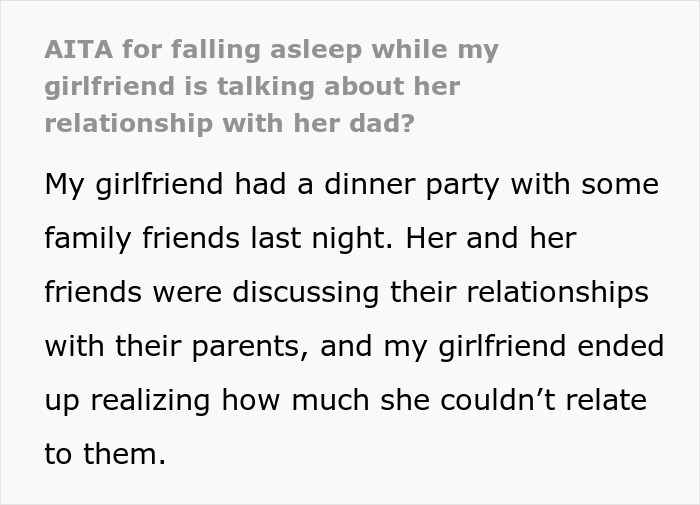

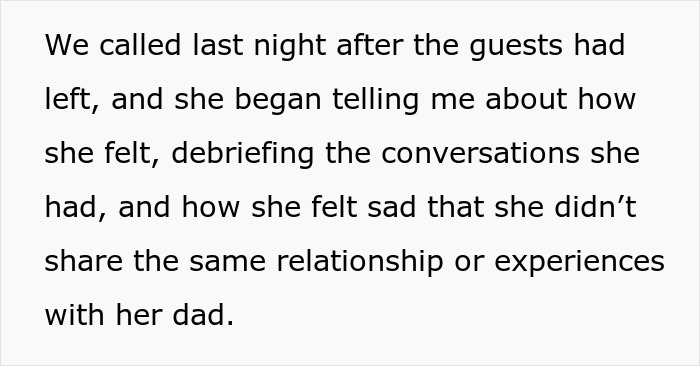


Image credits: ArseniiPalivoda / envatoelements (not the actual photo)

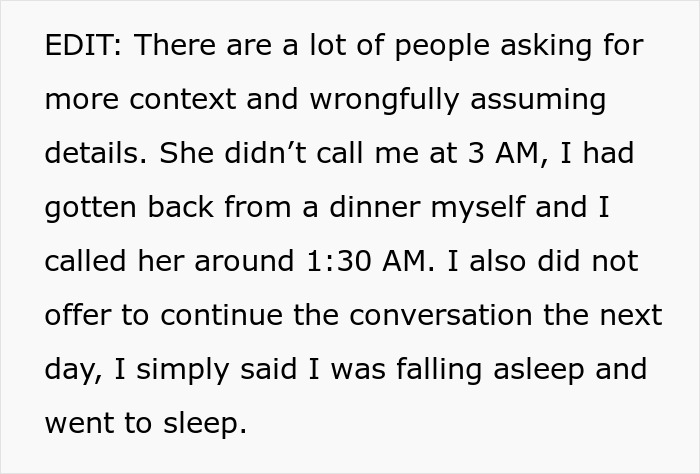
Image credits: hellokittuh
It’s common for kids to have a turbulent relationship with one or both parents

Image credits: Kindel Media / pexels (not the actual photo)
Our parents should be the first people that we can go to for help or rely on when we need a shoulder to cry on. They’re supposed to love us unconditionally and help us become the best versions of ourselves possible. But unfortunately, not everyone grows up having a mom and dad that they can consider to be their hero. One recent study found that nearly 40% of kids in the United States say that they lack strong emotional bonds with their parents.
Having a rocky relationship with their parents can also start to have an impact on kids from a young age. Those who have weak bonds with their mother and/or father are more likely to exhibit poor language and behavior before even starting school. A quarter of these children also say that they avoid their parents when they’re upset, rather than going to them for support and guidance.
Gallup also reports that parents who have high-quality relationships with their spouse or coparent are more likely to have strong relationships with their kids as well. But today nearly a quarter of kids in the US grow up in homes with only one parent, so it can be difficult or impossible for many children to have a healthy relationship with both of their parents.
A person’s childhood has a strong impact on their behavior in romantic relationships as an adult

Image credits: Timur Weber / pexels (not the actual photo)
You probably already know that the way you were raised and the relationships you have with your parents have a strong impact on how you’ll act in your own romantic relationships. But if you’re looking for specific examples of how, psychologist Franco Greco says communication patterns, attachment styles and expectations for support are some of the most obvious ways.
If you learn from a young age how to articulate your feelings, and your parents make it clear that your emotions are valid and worth talking about, you’ll likely have no issue bringing them up in romantic relationships. On the other hand, however, if your parents never asked you to communicate your feelings, and perhaps never shared their own either, you might have a hard time learning healthy communication styles later on in life.
In the same vein, if you developed a secure attachment style as a child, with parents who made you feel safe and always assured you that they could be trusted, you might have no problem trusting romantic partners. But if you developed an anxious-preoccupied, dismissing-avoidant, or fearful-avoidant attachment style as a child, your mind will likely revert to the same patterns with your own partners as well.
Conversations with partners about past trauma should be handled with care
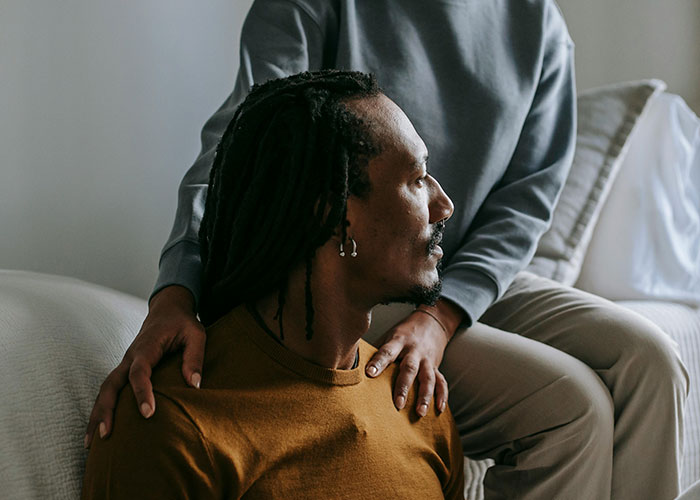
Image credits: Alex Green / pexels (not the actual photo)
It’s important to feel safe discussing your upbringing and past traumas with your partner, but there can still be appropriate times and places to have these conversations. You don’t want to bring them up on the first date, as you want to be sure that you trust the person that you’re opening up to, and trauma dumping early on can overwhelm potential partners.
Therapy for Black Girls also notes on their site that it’s important to consider why exactly you want to have this conversation with your partner and how they might respond. Do you want to share to feel closer to them? Or to explain why certain situations might trigger you? If you’re worried that this information might cause your partner to look at you differently or change your relationship, it might not be the best time to share.
Before opening up about past trauma, you also have to prepare yourself for the possibility that your partner might not respond the way you’d like them to. To try to minimize the risk of the situation going poorly, it might be wise to plan out when and how you’re going to talk to them. Don’t spring it on them, and ensure that there’s plenty of time to have an in-depth conversation. While it can be difficult to hold back when something’s on your mind, opening a can of worms at 3am isn’t always the best idea.
We would love to hear your thoughts on this situation in the comments below, pandas. Then, if you’re interested in reading a similar Bored Panda article, we recommend this piece that also discusses relationship drama!
Readers were conflicted about the story, but some assured the man that he did nothing wrong


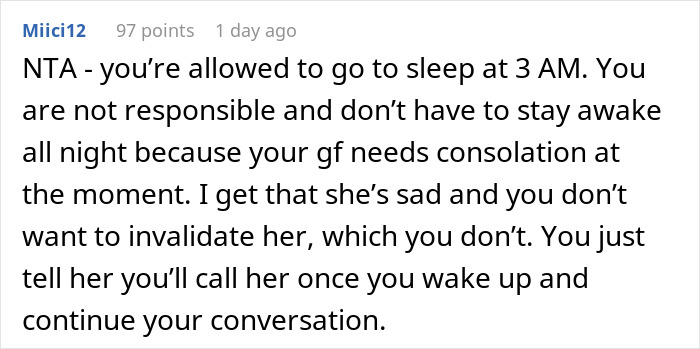
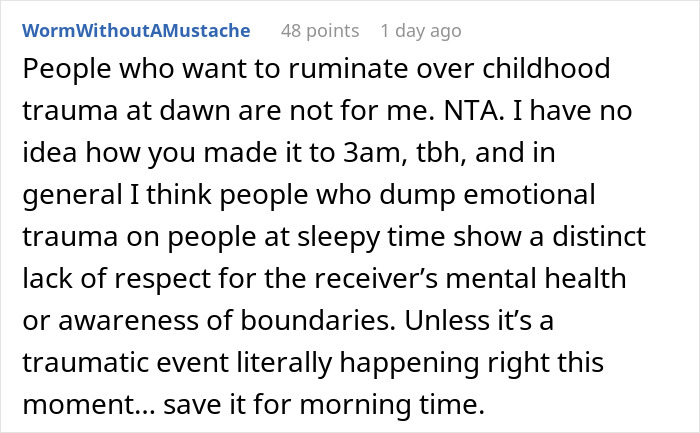

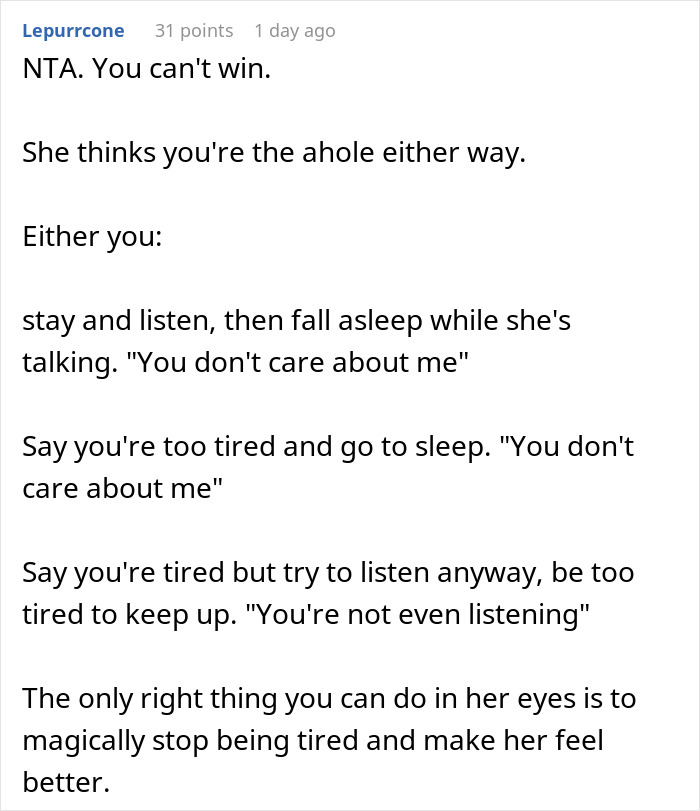

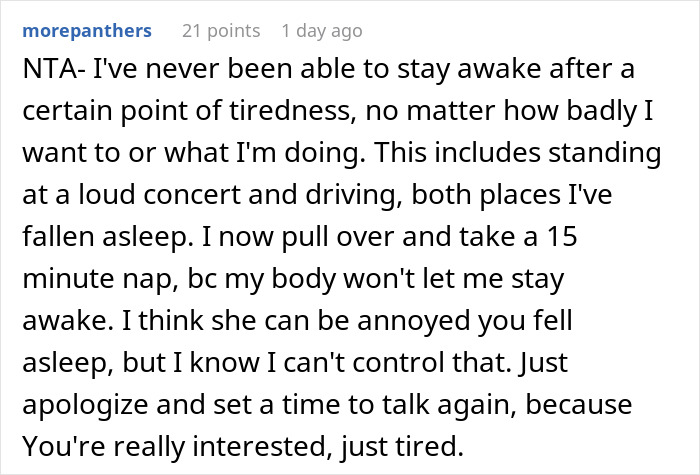


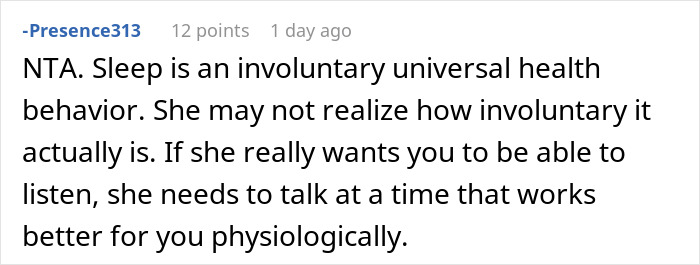
However, others called the man out for failing to console his girlfriend
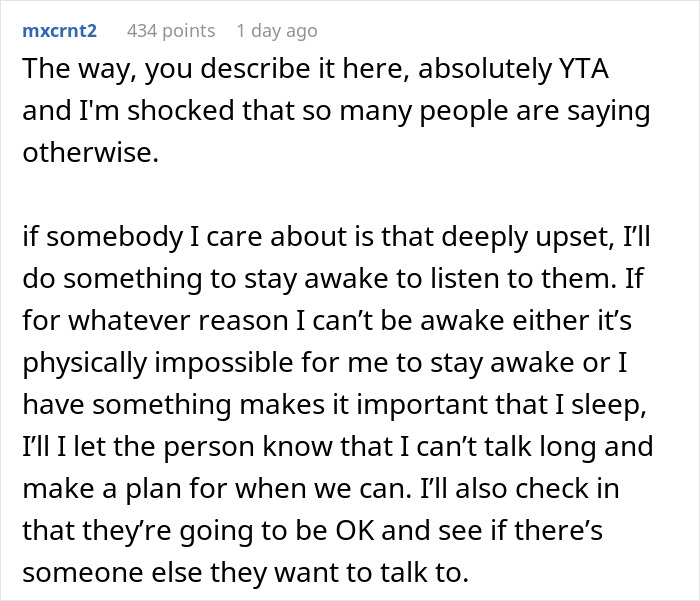
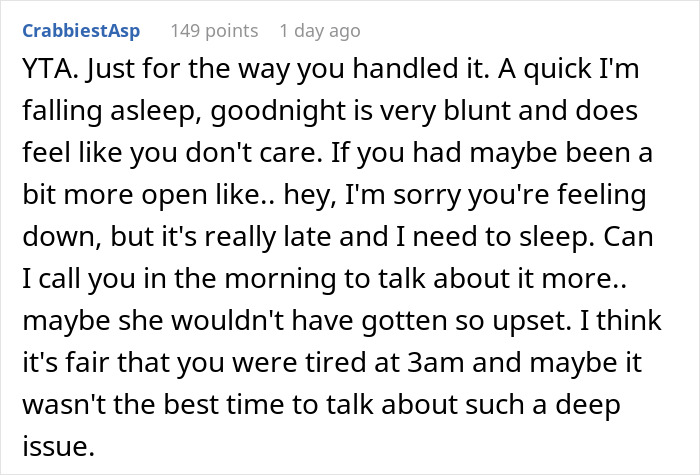

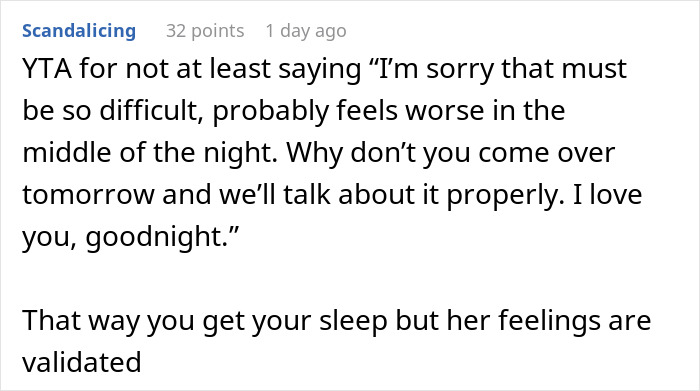
Some readers thought the situation could have been handled better by all involved
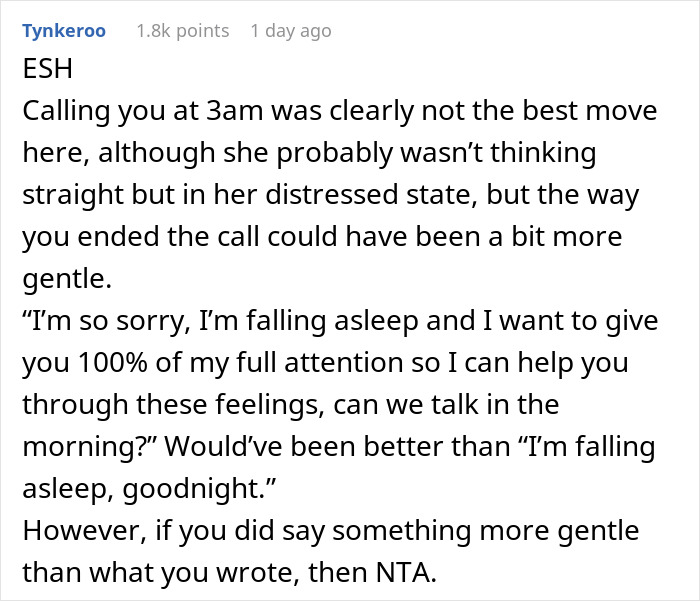
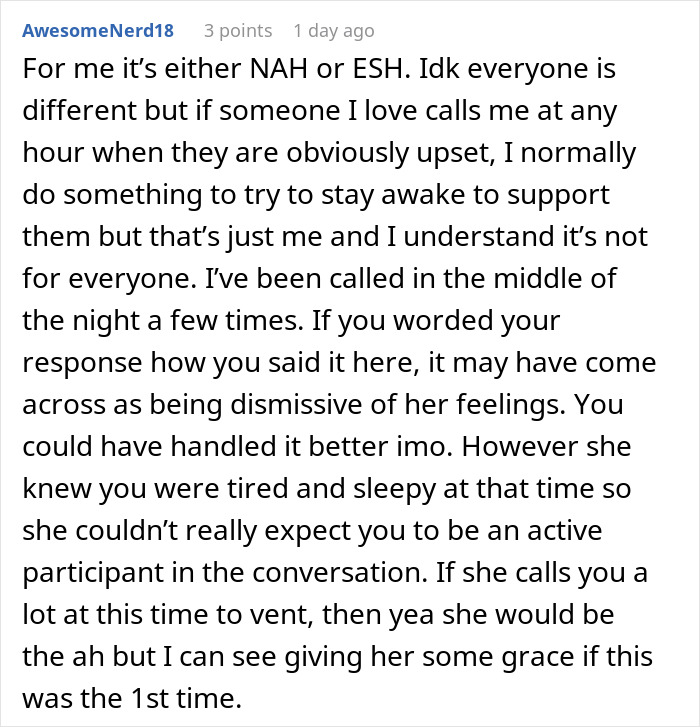
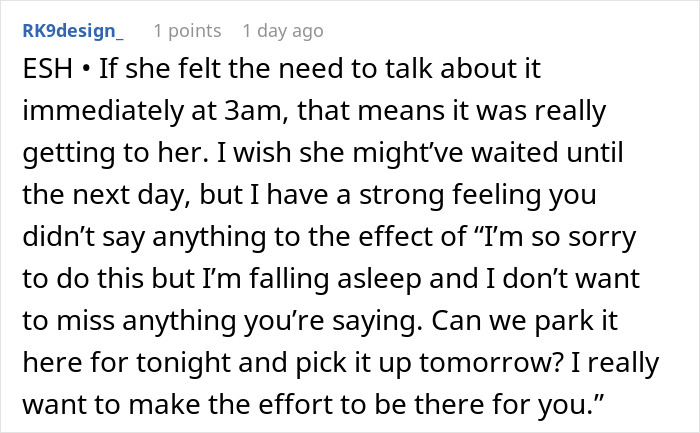
And others thought that neither side did anything wrong

